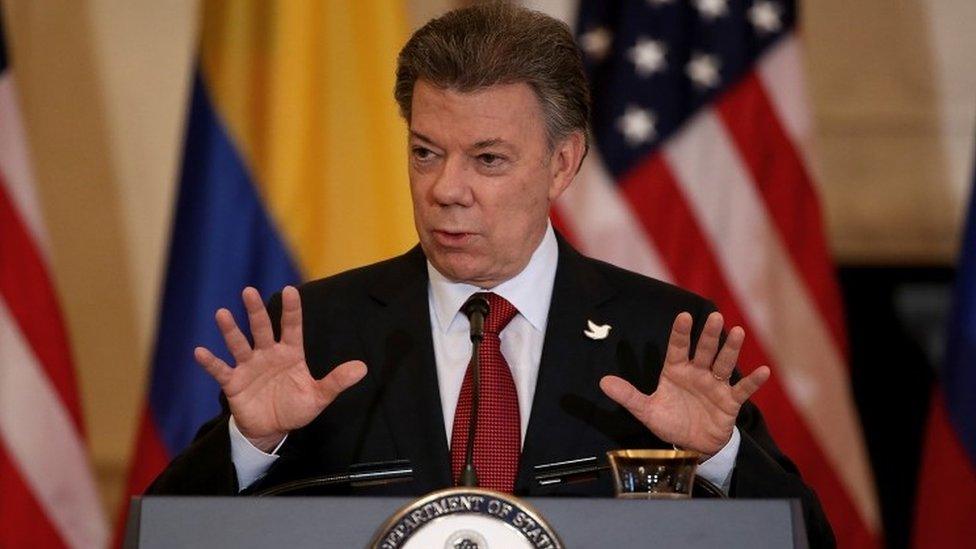Colombian ELN rebels 'regret' journalists' kidnap
- Published
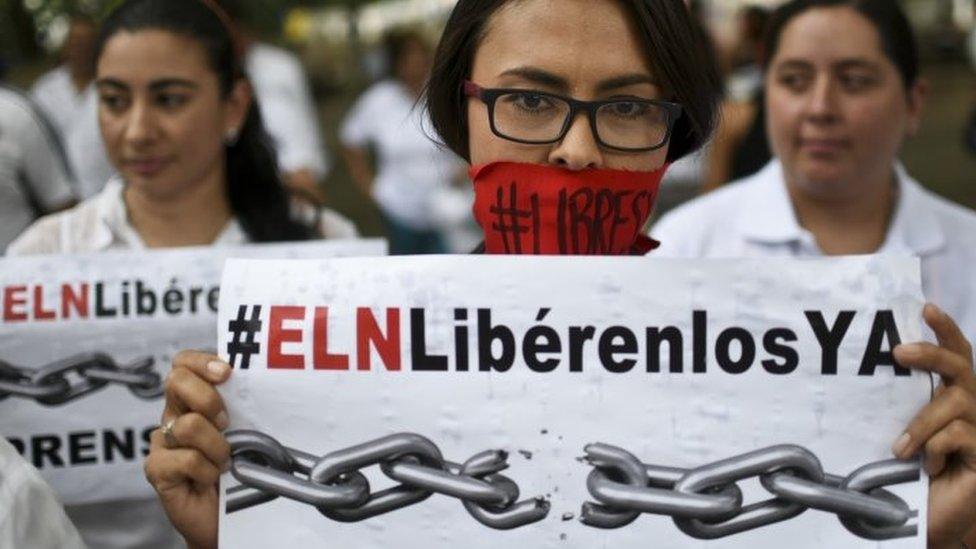
The kidnapping of the three journalists caused outrage among Colombians
Colombia's second largest rebel group, the National Liberation Army (ELN) says it "regrets" the kidnapping of three journalists earlier this month.
The three were released on Friday, less than a week after they were seized in the north-eastern Catatumbo region.
In March, the ELN and the government announced they would start formal peace talks in May.
But the talks have been delayed because the ELN has not met the government's demand to stop kidnapping people.

Who are the ELN rebels?

The group has been fighting the Colombian state for more than five decades
The guerrilla group was founded in 1964 to fight Colombia's unequal distribution of land and riches, inspired by the Cuban revolution of 1959.
One of its key leaders was Camilo Torres, a priest and pioneer of liberation theology, a radical movement within the Catholic Church especially popular in Latin America, where it emerged in response to widespread poverty and ill-treatment of ordinary people.
Over the decades, the group has attacked large landholders and multinational companies, and repeatedly blown up oil pipelines.
To finance itself it has resorted to extortion, kidnappings and drug trafficking.
It has been strongest in rural areas.

On Sunday, the central command of the rebel group broadcast a message on its radio station saying it regretted the kidnapping of Salud Hernandez Mora, Diego D'Pablos and Carlos Melo.
Ms Hernandez Mora, a veteran journalist who holds both Spanish and Colombian citizenship, was taken on 21 May in the village of El Tarra.
'Imprudent'
El Tarra is located in the Catatumbo region, a dangerous area where the ELN, as well as a smaller rebel group and a number of criminal gangs are active.
Mr D'Pablos and Mr Melo travelled to El Tarra to report on Ms Mora Hernandez's disappearance and were seized two days later.
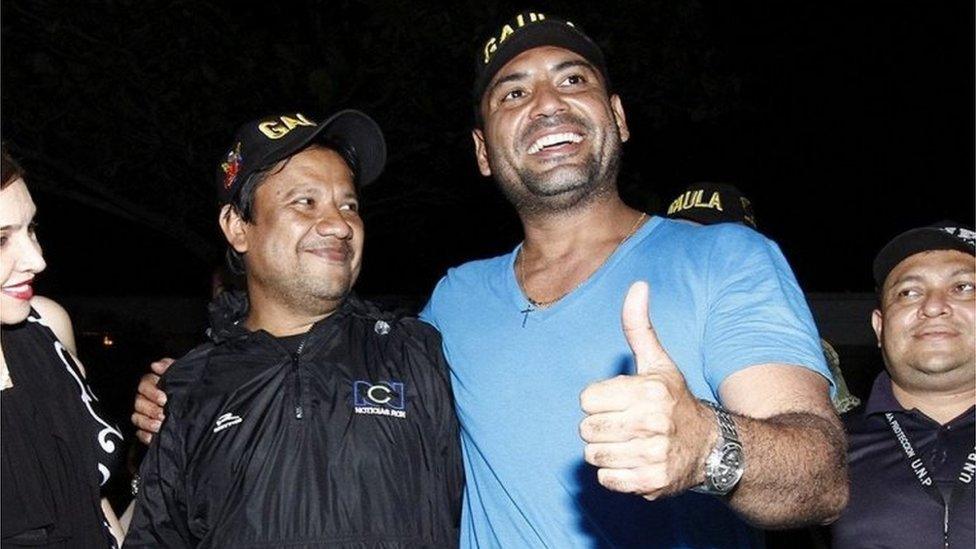
Carlos Melo (left) and Diego D'Pablos were kidnapped by the ELN as they were reporting on the abduction of Ms Hernandez Mora
The ELN said the journalists had acted "imprudently" when they entered the area.
The rebel command said that as soon as it found out the three were in the hands of one of its units "we ordered them to set them free immediately in a way which would not put their lives at risk".
The command also said that the kidnappings had not been planned.
They came just two months after the ELN and the government announced they would hold formal peace talks in neighbouring Ecuador in May.
Following the release of the three journalists, Colombian President Juan Manuel Santos wrote on Twitter (in Spanish), external that "we will not start negotiations until the ELN swears off kidnappings and frees all those it holds".
The ELN is the smaller of Colombia's two main rebel groups and considered by analysts to be more difficult to negotiate with, not least because of its refusal to stop kidnapping.
The larger one, the Revolutionary Armed Forces of Colombia (Farc), has been engaged in peace talks with the government since 2013 and the two sides hope to sign a final agreement within months.
- Published30 March 2016
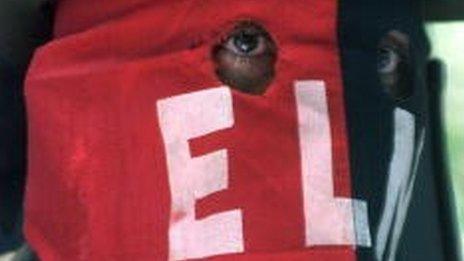
- Published28 February 2016
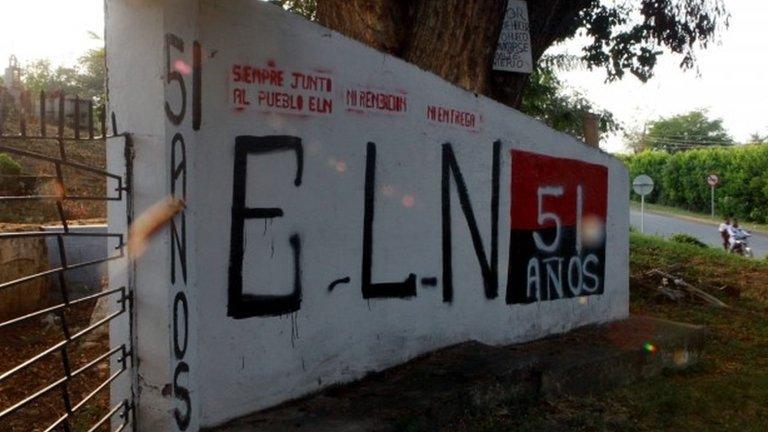
- Published9 February 2016
